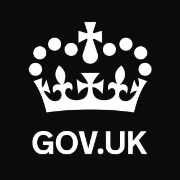Cowper’s Cut 282: A PM who can’t count and an NHS England who can’t lead

The PM gets his sums wrong
For an ex-Goldman Sachs type, former Chancellor and would-be Master Of the Universe, PM Rishi 'The Brand' Sunak seems worryingly bad with numbers.
First, I gave a quick update on my five priorities.
— Rishi Sunak (@RishiSunak) August 2, 2023
Whilst we’re on track to achieve most of them, waiting lists are not yet falling because of the strikes in our NHS.
I hope those still striking will accept the independent pay offer and get back to doing what they love. pic.twitter.com/yqpXZ1MSWM
He told the Nick Ferrari Show on LBC that "we've eliminated the number of two-year waiters ... we've practically eliminated the number of one-and-a-half year waiters", and blamed the growing RTT waiting list on the strikes.
This is, of course, untrue.
Two-year waiters have not been eliminated, nor have one-and-a-half year waiters: the latest RTT update is clear that “in 11,446 cases they were waiting more than 78 weeks, and in 482 cases they were waiting more than 104 weeks.”
The Prime Minister seems worryingly ill-informed about the facts.
And median waiting times (representing most people’s experience) are still growing.
A reminder that these NHS/ambulance performance charts start *before* the pandemic and end *before* the strikes. https://t.co/nbWUHdboBJ pic.twitter.com/3OgODlNIwb
— Dr Duncan Robertson (@Dr_D_Robertson) August 2, 2023
Not only does The Brand seem curiously bad at numbers, he’s also dreadfully tetchy when challenged.
In a General Election campaign, this won’t work well at all, and there’s probably neither the humility nor the time to coach it out of him.
Only the private sector can save us now
What do you mean, the Department For Health But Social Care pulled their 'do the press briefing and release a day before releasing the document: the nationals will all fall for it again' trick again?
This is a poor way to announce policy and is now standard Whitehall practice. Full review now live, but as @LawrenceDunhill points out, the trick works: Review now live but headlines already secured based on bland selective press release. Full doc here: https://t.co/jAsx6qiNDz https://t.co/4rIZ1l2zbM
— James Illman (@Jamesillman) August 4, 2023
Well, they did and they did, respectively.
After a day of asinine media compliance with this venerable 'media management for dummies' standby, DHBSC finally launched the 'Electoral Recovery Taskforce: Implementation Plan' late on Friday afternoon.

You'll never guess what!
It re-announces the existing policy of patient choice, so that's bound to keep on working just as brilliantly as it has been doing over recent years.
I, for one, am mightily relieved to learn that patients will be “actively offered a list of providers, a minimum of five providers where possible, which are clinically appropriate for their condition at the point of referral”, while “all patients waiting over 40 weeks who have not had a first outpatient appointment booked or where a decision to treat has been made but the patient does not have a date for their treatment will be able to initiate a request to transfer to another provider and receive treatment more quickly by this October”.
The private sector will open and run eight new community diagnostic centres. The NHS will open and run another five.
No details were provided about the duration or nature of these contracts: suspicious minds will wonder whether NHSE's commercial genius has avoided the risk of 'take or pay' contracts, as seen in the early Independent Sector Treatment Centre deals.
Interesting to see what this will be
— George Donald (@GMDonald) August 4, 2023
"NHS England is publishing regular data on independent sector use as part of a single data set from July 2023"
NHSE data on RTT and Diagnostics already includes IS data.
The media were also briefed on ministerial pledges of new rules which will make it easier for the NHS to send patients to the independent sector.
Were these new rules available for public scrutiny? Of course not!
— Prof Alison Leary 💙#ProtectNurse (@alisonleary1) August 4, 2023
Secretary Of State For Worrying About The Reshuffle Steve 'The Banker' Barclay' was quick out of the media traps, inspiring a timely response from workforce expert Professor Alison Leary.
Expanding diagnostic capacity, particularly in more convenient community settings, is good. If it can help to detect serious illnesses at earlier stages, that should help things.
But all these scans and tests have to be read and resulting treatments planned and initiated; and it is not obvious (to put it mildly) that expanding the workforce to do all of these key steps in the process has been at the centre of what passes for DHBSC/NHSE thinking.
The ERTIP needs to be read alongside NHS England's "Dear Comrade" letter 'Protecting and expanding elective capacity', in which everybody's favourite QUANGO told an exhausted and demoralised service that "we need to build on the expectation of freeing up capacity and increasing productivity.
"This can be achieved through reducing follow up appointments with no procedure, fully validating RTT waiting lists, reducing variation in clinical templates, moving to patient-initiated follow-up where appropriate, following clinically-informed access policies and implementing new ways of working, such as group outpatient follow ups, reviewing clinical pathways and workforce models".
This sounds great! I wonder why (as Health Service Journal's James Illman revealed back in March) the NHS hasn't been doing these things?
Is it laziness, obstreperousness, stupidity ... or shortage of management capacity and capability? Answers on a copy of the recent Institute For Government report on NHS productivity: first prize is a day out discussing cryptocurrency and tech with Matt Hancock. (Second prize: two such days; third prize, three such days.)
The NHS England managerial mindset is on beautiful display with their imprecation "on three key actions that we are asking you to take:
- Revisit your plan on outpatient follow up reduction, to identify more opportunity for transformation.
- Set an ambition that no patient in the 65-week ‘cohort’ (patients who, if not treated by 31 March 2024, will have breached 65 weeks) will be waiting for a first outpatient appointment after 31 October 2023.
- Maintain an accurate and validated waiting list by ensuring that at least 90% of patients who have been waiting over 12 weeks are contacted and validated (in line with December 2022 validation guidance) by 31 October 2023, and ensuring that RTT rules are applied in line with the RTT national rules suite and local access policies are appropriately applied.
"We are now asking trusts to provide assurance against a set of activities that will drive outpatient recovery at pace. This process will require a review of current annual plans, detailing the progress that can be made on outpatients transformation.
"As part of the above priorities, we are asking each provider to ensure that this work is discussed and challenged appropriately at board, undertake a board self-certification process and have it signed off by trust chairs and chief executives by 30 September 2023."
It's signed by Jim (Mackey) and Tim (Biggs) - and if you think the above quote is a red flag for a massive preparation exercise for NHSE directorial blameshifting, then you've clearly been paying attention.
NHS waiting lists un-'slashed'

BBC News embarrassed themselves again this week by repeating a briefing they had from DHBSC/NHSE that the 'backlog of longest-waiting NHS patients (was) slashed in England'.
It's telling that no BBC journalist would put their name to this nonsense.
It's funny because it's untrue. The piece asserts that "the number of people waiting longer than two years for routine operations in England has fallen from 22,500 at the start of the year, to fewer than 200, according to NHS figures. This excludes more than 2,500 who are complex cases or chose not to travel for speedier treatment. (My underlining.)
"NHS England said it had achieved the first milestone in its plan to eliminate backlogs caused by Covid." Ho ho ho. The original target to ‘eliminate’ two year waits was indeed by July.
It's just that it was by July 2022. “By July 2022, no one will wait longer than two years for an elective treatment. The NHS will aim to eliminate waits of over 18 months by April 2023”, as the original Electoral Recovery Plan ambitioned it back in February 2022.
But yeah, sure, this is a triumph (for journalism that doesn’t pay attention).
GPs can do more!
The week also saw NHS England publish a remarkable bit of nonsense, even by their high standards.
It claimed that "hundreds of thousands of patients could benefit from a quicker diagnosis for a range of respiratory and heart conditions, through ambitious new NHS plans for fast-tracked tests and checks ... GP practices will be able to directly order diagnostic checks to identify a wide range of conditions, including COPD, asthma, cardiovascular disease and heart failure.
"Up to one million patients could benefit from the accelerated access, reducing the need for a specialist consultation and speeding up potentially life-saving treatment and medication for patients. The additional route for testing could also help ease pressure throughout the busier winter when demand is highest and respiratory illnesses are more prevalent.
"The initiative, already in place for cancer, has provided quicker access to tests for almost 80,000 people who may not meet the NICE guidance threshold for an urgent cancer referral".
The word “could” is doing A Lot Of Heavy Lifting Here. It can otherwise be read as 'we don’t have extra testing and interpreting capacity/capability to do this, never mind to provide treatment when more cases are found'.
Particular props are due for the press release's imbecilic mention of “the covid backlogs”. The RTT backlog was 4.4 million in January 2020 before Covid hit, and has risen by an average of 100,000 a month since then, to just under 7.5 million now.
10/10, no notes. The fictional health policy bandwagon rolls on its merry way.
FPPT: FFS

NHS England couldn't let it lie, though: they had to go and release their ‘Leadership Competency Framework’, as HSJ editor Alastair McLellan spotted. This is the latest iteration of the 'Fit And Proper Person Test'.
The recommended competencies on which leaders will apparently be assessed are: “setting strategy and delivering long term transformation; leading for equality; driving high quality, sustainable outcomes; providing robust governance and assurance; creating a compassionate and inclusive culture; and building trusted relationships with partners and communities.”
I laughed until I stopped.
Does NHS England ever read what its staff or its stakeholders say about it?

The available evidence that NHS England can usefully assess anybody else on these things, given its abysmal reputation within the NHS in England based on this very range of subjects, is non-existent.
Workforce health
It's almost trite to have to point it out, but how the NHS and care workforce are doing health-wise is very important indeed.
It wasn't fabulous before the pandemic, and it's less so now.

A survey by the Medical Protection Society on doctors' mental health featured on Channel Four News suggested that almost half of all responding doctors report that their mental health is now even worse than during the pandemic, as they struggle with overwork, scarce resources and rising demand from patients.
Meanwhile, Pulse found that 25% of GPs responding to an online poll said that they had taken out private medical insurance, "citing concerns around waiting lists and the level of treatment available on the NHS.
"The survey of 860 GPs found that 21% have their own personal private medical insurance, while 4% have it funded through employers. A further 15% said they were considering taking it out."
The £1.5 billion 'fair cost of care' gap
There’s a crisis of funding in England’s elderly care homes.
— Channel 4 News (@Channel4News) August 1, 2023
A lack of long-term investment in social care means local authorities can't pay the true cost to providers.
That's left a gaping shortfall as @C4Ciaran explains. pic.twitter.com/flsSlPy4B1
Care England's analysis, shared with Channel Four News, suggests that there is a £1.5 billion gap between councils in England's estimates of the 'fair costs' of social care and the care sector's actual costs of production.
This won't be helped by those care home owners who are now remortgaging at vastly higher interest rates than hitherto, which 'Cut' covered two weeks ago.
Strikes update

The Times reported possible lower junior doctor participation in the latest round of their industrial action over pay. It's an intriguing piece: the real data is, as Eleanor Hayward observes, incomplete. And we will get a more accurate picture than this of junior doctors' morale and fight-readiness in early September, when the results of their current re-ballot on strike action are published.
The key point of Hayward's article is that "765,000 hospital appointments have been cancelled due to a wave of NHS industrial action since December, and a five-day junior doctor strike this month resulted in 102,000 cancellations".
This figure tells us how much of the 7.5 million RTT backlog can in fact be attributed to the pay dispute strikes.
Manager-bashing
Ah, the Boris Johnson Fanzine: it really is where thought goes to die.

Their wonderful report on Secretary Of State For Worrying About The Reshuffle Steve 'The Banker' Barclay's 'cull of bureaucrats' is a marvellous example of the political right's absolute dearth of serious thought about the NHS and its real (rather than imaginary) problems.
It gets better: a Whitehall source occupying the same pair of shoes as The Banker's SpAd told The BJF, “Steve has always been interested in cutting bureaucracy and getting the taxpayer value for money. This goes right back to when he was a member of the public accounts committee, after first being elected to Parliament, and his time as chief secretary to the Treasury.
“In just a few months as Health Secretary, he’s been able to significantly reduce the number of civil servants in the Whitehall department, while making sure that more money is going to the front line – be that more money for doctors and nurses or the latest technology, all of which is aimed at cutting waiting lists and getting people better treatment more quickly.”
This would be spiffing stuff, if the evidence from The Real World were not that the NHS is seriously under-managed.

The Department For Health But Social Care has been de facto in charge of its wholly-owned subsidiary NHS England since the 2022 Act became law, and The Banker has not been shy to remind the NHSE leadership of this.
Unfortunately, the DHBSC don't seem very capable of pointing out to NHSE when it is doing something absurd, such as its laughable winter 'plan', as covered in last week's 'Cut'.
Perhaps this is due to DHBSC's lack of high-quality internal managerial capacity?
Cronyvirus and coronamillions update
The Guardian's David Conn and Rob Evans tenacity keeps on keeping on: Labour peer George Foulkes asked the House of Lords conduct watchdog to reopen their investigation "into whether the Conservative peer Lord Chadlington may have breached lobbying rules when he introduced a company that was awarded PPE contracts worth £50 million".
Foulkes is suggesting that the commissioner appears to have been misled by Chadlington, after the Guardian reported new details about the introduction of the healthcare agency SG Recruitment.
The Sunday Times reports that the noble Baroness Mone's accountant Anthony Page has been sacked from PPE Medpro, the PPE company that received more than £200 million of taxpayers’ money after she lobbied ministers.
Accountants usually know quite a lot. This could get interesting.
The Alan comeuppance
Alan's West Suffolk constituency is to be contested for the Conservative And Unionist Party at the upcoming General Election by PM Theresa May's former very special advisor Nick Timothy.
Yes, that very same Nick Timothy.
Poor old West Suffolk.
Recommended and required reading
RCEM president Adrian Boyle wrote for The Independent about the risks of major problems recurring this coming winter, and the inadequacy of NHS England's plans.
New paper by Mary Dixon-Woods and colleagues 'What counts as a voiceable concern in decisions about speaking out in hospitals: A qualitative study'.
Barry Mulholland of MBI on UK cancer care performance.
HSJ's Katherine Hignett spotted 24 'Prevention Of Future Deaths' reports from coroners sent to NHS organisations in England and Wales January-June 2023.
Good and thoughtful Guardian autobiographical piece on the determinants of health by Lord Bethell.
The Times reports that Lord Darzi of Denham is opening a new institute in 2028. 'The Fleming Centre'.
Kings Fund policy advisor Charlotte Wickens has this remarkably sensible piece on Conservative Home about the red herring of changing the NHS funding model.
The NHS is not being ambitious enough on emergency care, say the presidents of the Royal College of Physicians, Society for Acute Medicine, British Thoracic Society and British Geriatrics Society in this joint response to NHS England’s winter plan for HSJ.
Spotlight on Nursing & Midwifery highlights:
— Andrea Sutcliffe 💙💚💜 (@Crouchendtiger7) August 4, 2023
✳️ impact of discrimination on international professionals
✳️ inconsistent support for new recruits
✳️ common themes we see in maternity concerns
✅ I hope health & care leaders will use to improve for the public’s benefit@nmcnews
2/3 pic.twitter.com/M34J8JFZd0
The Nursing And Midwifery Council published their first 'Spotlight On Nursing And Midwifery': hopefully, it will be a source of change and learning.






